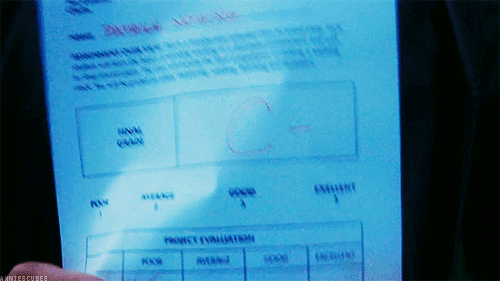
This post was written by an external contributor. Michele Theil has some advice to help anyone in the workplace who suffers with Impostor Syndrome.
Impostor syndrome is increasingly common among young people, with research demonstrating that 70% of successful people suffer from impostor syndrome.
The definition of impostor syndrome is not feeling like your accomplishments matter, being scared of feeling like a fraud and thinking that you don’t ‘belong’ in the position you were given. It’s a very difficult feeling to have and something I have personally struggled with.
It’s hard to overcome the feeling of inadequacy or the idea that everything you’ve worked hard for is simply luck rather than actual hard work. However, here are a few ideas to battle Impostor Syndrome, no matter how you feel:
Record your goals and achievements

If you feel like you’re never getting anywhere, it’s best to write them down and keep a continuous record of it. You could put it in a diary or a planner or even a poster on your wall so that you can always take a quick peek and see what you have achieved.
You can also check how far you have to go to achieve your next goal – which is always just around the corner.
Find someone to reassure you

Whether it’s just a friend, a family member or (best of all) someone in the same field as you, external validation may just be the push you need to believe in yourself, even if it’s for a moment.
Occasionally, if I’m feeling insecure about my future career plans, I have friends who are able to snap me out of it. It’s really helpful to have someone tell you “yes, you can do it”, particularly if the voice inside is saying otherwise.
Don’t ignore or minimise praise

Praise and recognition is important to everyone. If you have impostor syndrome, it can be easy to ignore or minimise people’s recognition of your great work and the compliments they offer about your skill.
We all need to learn to accept compliments a little easier because it seems like it’s the polite thing to do to pretend like you didn’t work hard to earn that compliment. Keep those comments in your mind for when you’re having a tough time and you need it – they will help, I promise.
It’s not luck, it’s hard work

It’s common for people to say that they’re lucky to have gotten where they are. But, you must recognise in yourself that YOU are the one who worked your way here – luck had nothing to do with it. It was a combination of blood, sweat and tears.
You would never say a professional athlete, Michael Phelps for instance, got to the Olympics through luck right? No, he trained hard every day and made it to the Olympics. Think of yourself as Michael Phelps – you worked hard and you’ve made it here today.
Own your mistakes and learn from them

Making a mistake in a professional setting can be heart wrenching. You may feel like one mistake is the end of the world and that this mistake is what is going to ‘expose’ you as a fraud. However, everyone makes mistakes. Literally everyone.
My advice is this: own your mistakes and then see what you can learn from them in the end. There will always be something you can take away from it next time.
These are just a few of the ways of battling Impostor Syndrome but the main thing you need to do is find out what the underlying cause is and hopefully you will be able to stop it at the root of the issue. You CAN overcome it, we promise!
Connect with Debut on Facebook, Twitter, and LinkedIn for more careers insights.


